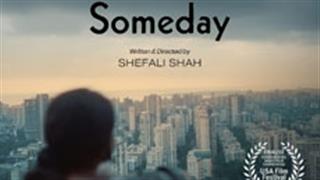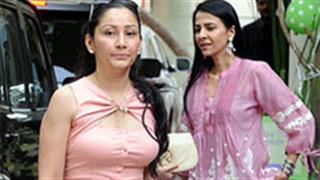/>
Canada-based Indian filmmaker Deepa Mehta, who is making a film on Salman Rushdie's bestseller "Midnight's Children", says the author was lied to and discouraged from attending the Jaipur Literature Festival. But she is confident that she would be able to release the movie without any trouble in India.
Excerpts from an interview:
Q: Your friend and creative collaborator Salman Rushdie was not allowed to attend the Jaipur Literature Festival. How do you react to this?
A: That isn't true. Rushdie was not disallowed from attending the Jaipur Literature Festival. He was lied to and misinformed by police and local politicians. He was actively discouraged from attending the festival. He was told that his attendance would endanger not only the festival but also himself. It's this dishonesty that is despicable. The detailed planning of this whole devious farce for electoral political gain is what is totally creepy.
Q: Deepa, you yourself have repeatedly been a victim of cultural and political tyranny. Does that give you a sense of empathy with Rushdie?
A: Any human being with even an iota of sense would feel rightfully indignant for Rushdie. Empathy is a given.
Q: Your "Fire", then "1947: Earth" were gagged. Do you see any radical difference in literary and cinematic gagging?
A: All gagging, whether in literature, cinema or art is identical. It's referred to as the lynching of freedom of expression.
Q: In a way, your destiny as a creative artiste runs parallel to Rushdie's. Your "Water" was not allowed to be made in Varanasi...Rushdie not allowed to be seen or heard in Jaipur. Do you see a pattern there?
A: I am not a great believer in destiny. The point is, despite the protests, "Water" did get made. And despite all the protests Rushdie will be welcomed and celebrated in the land of his birth by folks who appreciate the written word and are not small-minded bigots...As the ad for freedom of expression goes, they can burn books. They cannot silence his voice.
Q: You've now collaborated with Rushdie on "Midnight's Children". How do you think the recent controversies surrounding the author would impact the film in India?
A: "Midnight's Children" is chosen as a Booker of Bookers. It's a novel that is deeply loved by millions. Its author has often said the book is his 'love letter to India'. I think the film captures Rushdie's deep affection for India.
Q: Even "Midnight's Children" couldn't be shot in India. Any regrets?
A: None at all. The film spans from 1917 to 1977. The urban Indian landscape has changed so greatly. It would have been difficult in India to find the locations we needed for the film.
Q: Both Mira Nair and you wanted to shoot your current films partly in Pakistan. But couldn't. Do you feel it is growing progressively tough for artists in the so-called Third World to express themselves?
A: We never wanted to shoot "Midnight's Children" in Pakistan. After the failed attempt of trying to film "Earth" in Lahore, we didn't even consider it. Hmmm...it depends on what the artists want to express, and what category the artists fall into... NRI or not, controversial or not, influential or not, kow-towing to the West or not, if your father-in-law's grand nephew is owed a favour by a minister or not....it gets complicated and messy in India.
Q: Do you think the Western world is more tolerant to creative freedom than India and the Orient?
A: I don't know if tolerant is the correct word. Creative freedom is a given in most Western countries..
Q: What is the progress with the post-production of "Midnight's Children?"
A: Getting there.
Q: What release plans?
A: October 2012.
Q: Finally, do you think you'd face problems in releasing "Midnight's Children" in India?
A: None at all.
Rushdie was lied to, but I won`t face trouble: Deepa Mehta
Friday, February 03, 2012 12:19 IST



















